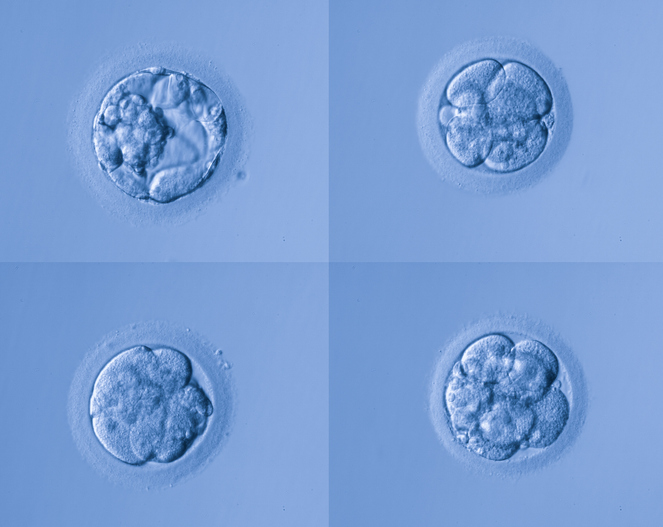.png)
.png)
Donating your eggs is an extraordinarily generous act. As an egg donor, you have the potential to help a family struggling with infertility or a same-sex couple realize their dreams of parenthood. But the decision to donate eggs is not one to be taken lightly, and it's natural to want the support and understanding of your family as you embark on this journey.
If your family is unfamiliar with the egg donation process, they may have numerous questions and concerns. Some of the most common questions revolve around the medical risks involved, potential contact with the intended parents (IPs), and the timeline of the whole process. Here's a guide to help you address these concerns.
Should I tell my family I’m an egg donor?
While there is no right answer, one thing is for certain, your decision to donate is yours and yours alone, and so is your decision to tell them… or not. This means you are the one who can best make this decision.
So when thinking through this decision, it is helpful to think about the relationships you have and what you feel comfortable telling those close to you. How supportive will they be about your decision? Do you feel afraid they might criticize you or not understand why you would want to do this, or try and talk you out of it? What is your fear or concern about telling, and how do you think this information will impact your relationships?
Read more in Should I Tell People I'm Donating My Eggs?
Common questions family members may have
What is the medical risk?
Egg freezing is considered a safe procedure. In a single egg freezing cycle, the risk of a serious adverse event is under 2.5%. Severe OHSS accounts for the majority of complications, occuring in 0.1-2% of cycles. The risk of other acute complications, including pelvic infection, intraperitoneal hemorrhage, or ovarian torsion, is small (<0.5%). That being said, many women do experience minor side effects – like bloating, constipation, nausea – from the medications and egg retrieval. Side effects are typically mild and short-lived.
Egg donation requires a series of hormone injections to stimulate the ovaries into producing multiple eggs during a single cycle. You can assure your family that these medications are prescribed under the careful supervision of a fertility doctor.
The egg retrieval process itself is a minor surgical procedure done under sedation, so you won't feel anything during the procedure. Post-procedure discomfort is typically minimal and can be managed with over-the-counter pain relievers.
You can remind your family that all steps of this process are carefully monitored by experienced fertility doctors who prioritize your health and safety above all.
Will egg donation impact your ability to have kids in the future?
Egg donation, which is the same medical procedure as egg freezing, won’t lower your egg reserve and it won’t affect your chances of getting pregnant naturally when you’re ready to do so. In fact, participating in our Split program – where you freeze your eggs for free when donating half to another family – can actually increase your chances of having a baby down the line because you are preserving younger eggs.
Who are the parents that need donor eggs?
Many types of families need egg donors to grow their family, including people facing infertility, LGBTQ+ couples, cancer survivors, women with age-related fertility decline, and more.
Sharing more about the family you are matched with can help humanize the experience.
What will your relationship be like with the intended parents?
The level of contact with the intended parents is highly dependent on the agreement you reach beforehand. Some arrangements are undisclosed, with no information exchanged between you and the IPs. Other arrangements are disclosed, allowing varying degrees of communication and contact, such as the exchange of letters or even face-to-face meetings.
Your choice about the type of relationship you wish to have with the IPs is up to you, and you should assure your family that you will make the choice that feels right.
What are the legal implications?
Understanding the legal rights and obligations associated with egg donation is important. You can let your family know that before the egg donation process begins, you will sign a legal contract that outlines the rights and obligations of all parties involved. This includes an agreement to relinquish all parental rights to any children born from the donated eggs.
All donors are given independent legal representation – at no expense – to explain the contract and ensure all your interests are protected.
How does Cofertility work?
Cofertility’s Split program offers women a chance to both freeze their own eggs and donate half the eggs to a family who cannot conceive otherwise. Every expense associated with the egg freezing procedure — medications, supplements, travel if necessary, insurance, and 10 years of storage — are completely free of charge.
Cofertility assigns a Member Advocate to each donor to support her throughout the entire journey. They’ll be there every step of the way as appointments get scheduled and plans for the cycle are made. No question is too small for Cofertility’s Member Advocate team. Plus, Split members have support of our entire community of others going through the same process.
How many babies are born via egg donation each year?
The exact number of babies born via egg donation each year can be difficult to determine due to variations in reporting standards worldwide. However, according to data from the Centers for Disease Control and Prevention (CDC), about 12% of all in vitro fertilization (IVF) procedures in the United States involve the use of donor eggs. This suggests that thousands of babies are born each year thanks to egg donation.
How much time will it take?
Egg donation isn't a quick process, but the timeline can vary depending on several factors, including your menstrual cycle and the matching process with intended parents. The process begins with an application, followed by a screening process, which can take several weeks.
Once approved and matched with the IPs, you'll start the ovarian stimulation process, which takes about two weeks. This involves daily hormone injections to stimulate the ovaries. The egg retrieval procedure is scheduled once the eggs are mature, typically after 10-14 days of stimulation. Following the retrieval, you will have a brief recovery period, usually a day or two, to allow any minor discomfort or side effects to dissipate. You will know immediately how many eggs were retrieved and frozen for your own future use.
In total, from match to recovery, the process can take anywhere from two to four months.
Final thoughts
Your family's concerns and questions about your decision to become an egg donor are understandable. They want to ensure your safety and wellbeing, and these are valid concerns.
As you discuss the process, remind them of your reasons for making this choice and assure them of your commitment to understanding and minimizing the risks involved. Encourage them to accompany you to a medical consultation if possible, to provide them an opportunity to hear information directly from professionals, and to ask any questions they may have.
Your act of egg donation could bring immense joy to a couple longing for a child. It's a profound decision, and having your family's understanding and support will undoubtedly make the journey smoother.










